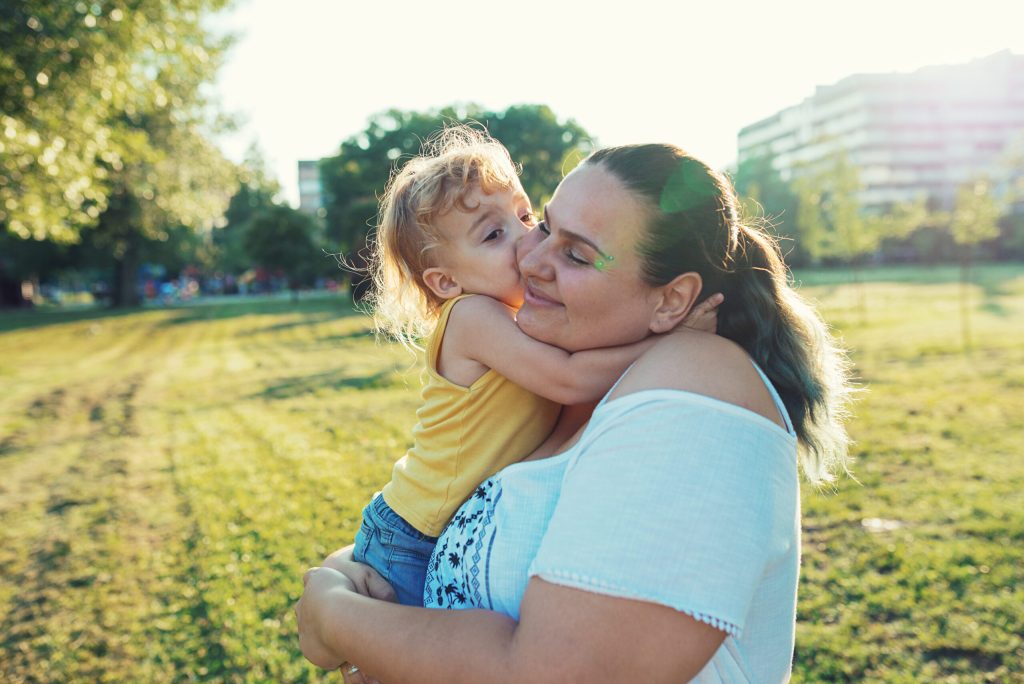Before I start, I want you to know I've managed to get through the toddler years with one child and I'm currently dealing with the challenges of having a 2-year-old with my other child. Yes, I'm also a clinical psychologist, Certified Gottman Therapist and educator, but when I talk to another parent about spending two hours dressing my child this morning (not an exaggeration), it's the parent of a 2-year-old who looks at me and says, "I feel so much better I'm not the only one." This helps me feel understood. You're not alone in struggling with this. It's tough, and we all need a little help. Advice for New Parents So here are 5 tips from one parent to another for dealing with the challenges of having a 2-year-old.
1. Be honest about the challenges
In my experience as a mother and a clinical psychologist, parents often downplay the difficulties because they're afraid of being seen as a "bad parent." When I worked as a perinatal psychologist, I spent a lot of time reassuring new mothers that they're not the only ones whose baby isn't sleeping well, and that other mothers are facing the same challenges but just aren't talking about it. Interestingly, when these moms did share their struggles, they often heard, "me too. I thought I was the only one."
2. Take a break when you need it
My number one strategy as a parent and in therapy with couples dealing with toddlers is to take a break when you need it. There are things you can do that will help, but this stage is going to be tough for most parents. Our little ones are going through a huge developmental leap, and it's a lot for them (and for us!). They require a lot of patience. And I've yet to meet a parent in this stage who hasn't had a moment where they reached their limit. If you don't have a co-parent to tag in, try to find people who can help you or ways you can safely take a break. Maybe a neighbor or a friend can help, or you can take them to an indoor playground so you can have a moment to relax.
3. Pick your battles
If you're parenting a toddler, you've probably heard other parents suggest this. But what does it mean? Well, first of all, 2-year-olds have BIG emotions, and as Dr. John Gottman puts it, when they get overwhelmed with emotion, so do you. When you're overwhelmed, you experience a state of physiological overload. As a parent, you need to be able to first regulate yourself and then help your child regulate. And honestly, as a parent of a 2-year-old, I don't always have the capacity for that. If I know something is going to be difficult for my child and I don't feel up to helping them through it, I choose not to do it (at that time). For example, recently my 2-year-old was showing signs they were ready to start toilet training, but we were going on a long boat ride and moving to a new house shortly after, so I postponed potty training. Does this make me a bad mom? No. Does it make me a mom who knows her own limits? Yes.
4. Focus on the relationship
Dr. John Gottman discusses the importance of maintaining a good balance in our relationships, which applies to both our relationships with our partners and with our children. We often spend a lot of time doing things for our kids like preparing meals and tidying up, leaving us with little energy to simply be present with them. Being present involves fully engaging with our child in activities they enjoy, such as building forts, playing with toys, reading, or having a cuddle. If you're tired but still want to be present, choose an activity that works for you, such as giving a hand massage or pretending to cut hair with plastic scissors.
5. Take care of you
Parents of 2-year-olds have a demanding role that requires them to take care of themselves. Dealing with situations like a child's ear-piercing scream, discovering a wall covered in pen marks, or handling the child's attempts at independence can easily push us to our limits. As I mentioned earlier, the patience required for 2-year-olds also demands us to manage our own emotional reactions effectively. It's important to prioritize our own well-being so we can provide the care our child needs. This might involve arranging for some time off to rest, seeking additional childcare, or scheduling activities that focus on our own needs. The key is to ensure that you are okay, so your child can be okay too.
, so you can take care of youFINAL THOUGHT them.
Raising a 2-year-old requires a great deal of patience and energy. Despite feeling drained, it's important to connect with others, share the responsibilities where possible, and remember to prioritize self-care. If you need more guidance or reassurance that you're not alone, consider reading parenting blogs or exploring the Gottmans’
Emotion Coaching program to gain insights on supporting young children with intense emotions. Here are some tips for parents to navigate the challenging toddler years while supporting their child’s healthy development.



